Respiratory Therapists
Battling a virus that attacks the lungs reminded everyone about the vital role of respiratory therapists. They not only help patients breathe easier – they hold hands, provide comforting words and have experienced both remarkable and heartbreaking moments.
In January 2022 – in the midst of the Omicron surge – members of the respiratory therapy team shared their personal experiences about what it’s like caring for patients during the pandemic. Read and listen to their stories here.
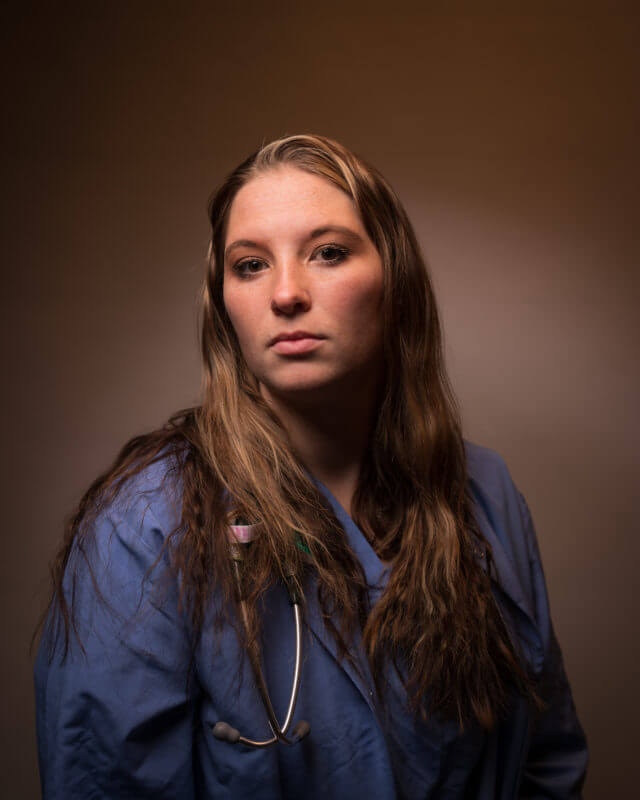
Kati Jo Daniels
COVID just hits your lungs and takes your lungs out. It’s miserable. I’ve held so many hands, hugged so many people and promised to be there for them. It’s just been heartbreaking. It’s been the hardest thing I’ve ever dealt with. I’m not an emotional person, but I probably cry after every single one of my shifts. We have dealt with more death in the last two years than my entire 10-year career in respiratory. We’ve had healthy people dying left and right, and in the worst ways possible, because you just can’t breathe.
“It’s been the hardest thing I’ve ever dealt with.”
Kati Jo Daniels, Respiratory Therapist
I had a young patient, the same age as me, who I had been with from the very beginning. I talked with him about his family, wife, and his two little girls who were the same age as my daughter. He told me how scared he was and I told him, “I’ll be here with you through everything and we’ll get through this together.” He got to the point where he needed to be intubated, and he looked at me and said, “I need you to tell my wife and my girls that I love them and that I promise I’ll always be there for them.” We intubated him and it just kept getting worse and worse, so we called his wife to come see him.
Right before she got there, his heart stopped. I was the one that started compressions on him. We coded him and coded him and we could not bring him back. And when I walked out the door after they called it, I saw his wife and little girls and I just lost it. I started crying and she looked at me and said, “You’re Kati Jo aren’t you.” And I grabbed her and I hugged her – just bawling. That was my first one. That was one of my hardest ones. Here’s this guy who I’ve been with from the beginning – he’s the same age as me, he has a family…it hit hard. I cried for a good three or four days after that.
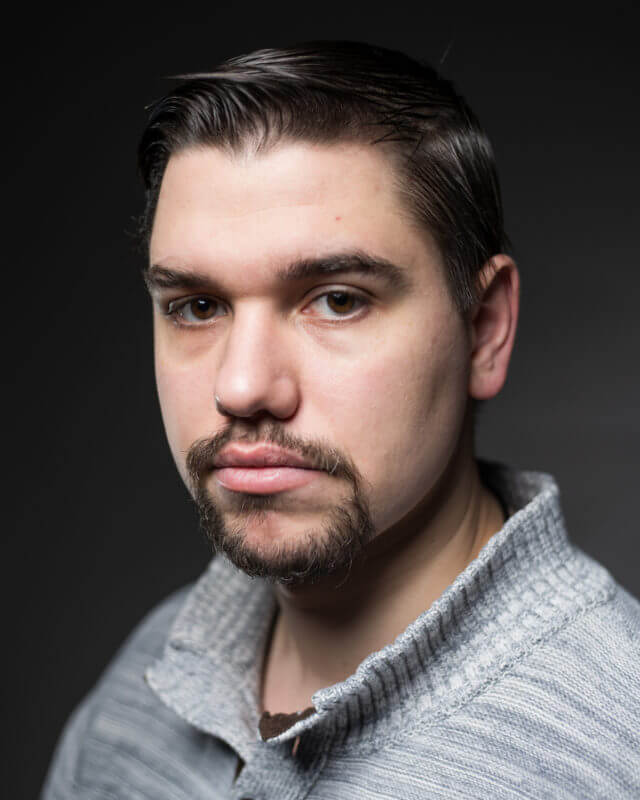
John Dvorak
As a respiratory therapist, we play the most vital role in terms of a patient’s breath, because if a patient can’t breathe, they die. In our role, there aren’t any drugs that can make the lungs take a deeper breath or expand the lungs. No drugs can make a patient breathe like what we do for our patients. There aren’t a lot of people in the community who can truly sympathize with what respiratory therapists deal with. I’ve cared for patients where afterward, I need to find a closet, shed a tear, and then move on with my work.
“No drugs can make a patient breathe like what we do for our patients.”
John Dvorak, Respiratory Therapist
I remember a patient who was intubated, but not going to survive. Visitors weren’t allowed so we had the family connected through Skype on the iPad before we extubated. I’ll never forget the wailing, the tears, and the grieving of that family over Skype because their loved one was going to die. That was one of the worst experiences. I felt helpless. I felt like I couldn’t do anything. I also remember another patient who was about to be intubated. We had his wife connected on an iPad. I could see the fear in his eyes and the fear that he felt. So I gave him a hug on his wife’s behalf because all she could do is talk to him through a screen. I think that helped, but I could see he was afraid. Afraid of everything that would happen, including the possibility of dying.
All I want to do is provide comfort to patients. Because the last thing I want for somebody who’s worried about what’s going to happen to their family and is afraid of dying is to feel that nobody around them cares.
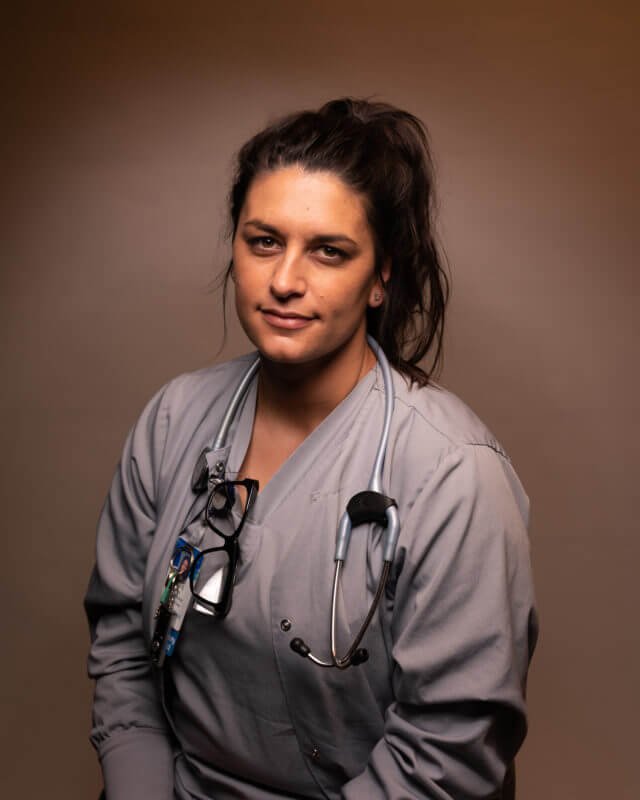
Alyssa Schumacher
It’s difficult because it’s so overwhelming and just so sad. I’ve had a couple of emotional breakdowns – crying and just taking a few moments at work to myself to kind of regain myself because I never anticipated so much sadness over these last two years. It’s stressful as a respiratory therapist when you can’t see the patients the way that you want to see them because you have so many of them to see. There have been multiple drives home where the only thing you can do is just cry because you don’t feel like you’ve conquered your shift. You feel defeated and you’re passing that defeat onto your coworkers because they’re the ones relieving you.
“I never anticipated so much sadness over these past two years.”
Alyssa Schumacher, Respiratory Therapist
So for me, it’s been a huge rollercoaster of ups and downs. And wondering if this is what I should be doing still? Am I supposed to be a respiratory therapist? Why am I weakening? All the way up to feeling so good when you leave work because you had that one patient that made it and you’re overjoyed. Dealing with those emotions is really difficult.
But I get up and go to work and take care of my patients because if I don’t, that’s one less person to care for our community. Our hospital serves 14 counties and that’s a huge area. If one of my family members needed care in the hospital and I’m not there, that’s one less respiratory therapist available for those services. That feeling did not come to me right away because there was a lot of hurt and sadness and anger prior to me changing my attitude. But when you see that patients aren’t able to get outstanding care because of being short staffed, it just clicked in me. I can’t quit because they need me. These patients need me. My team needs me. And you can’t effectively serve your community if you don’t have the people to work.
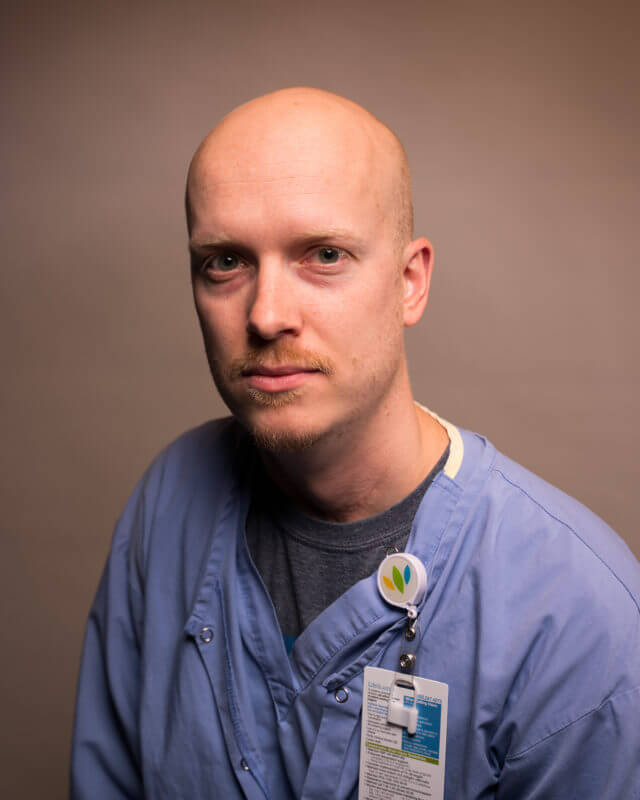
Nick Gangl
For me, the hardest part is really just the gut check of all of this. It’s that point where we’re preparing everything for intubation, you’re in the room, and they get that call or that FaceTime, and you’re there with them. It just hits you a little different. It really hits me in the heart. I just picture my loved ones and people close to me going through that same scenario. I also have a personal history with hospitals that comes up from my past.I was born premature at 32 weeks and I had a tracheostomy up until I was four years old. I’ve had extensive airway reconstructive surgeries – 43 surgeries actually – throughout my life, which is why my voice is raspy. So I’ve been on the other side. I’ve been a patient – a lot. I see people going through this and know how it is to be there.
“I just picture my loved ones and people close to me going through that same scenario.”
Nick Gangl, Respiratory Therapist
There’s so much of this experience that is difficult. It’s not that we didn’t see death prior to the pandemic, but the frequency of death right now is really hard. You’re working with the nurses, doctors and every facet of the care team to treat these patients, but seeing patients decline continually and the prevalence of death can be overwhelming.
But what gives me hope is coming to work and seeing everyone showing up every day. It’s having those conversations with people on the RT team and our care teams, and seeing people smiling with their eyes. It’s seeing there’s still positivity in our organization and within all our staff as a whole. I try to take things day by day, and week by week, and just find those silver linings in each day – and give patients the best care that we can. Because that’s why we’re all here.
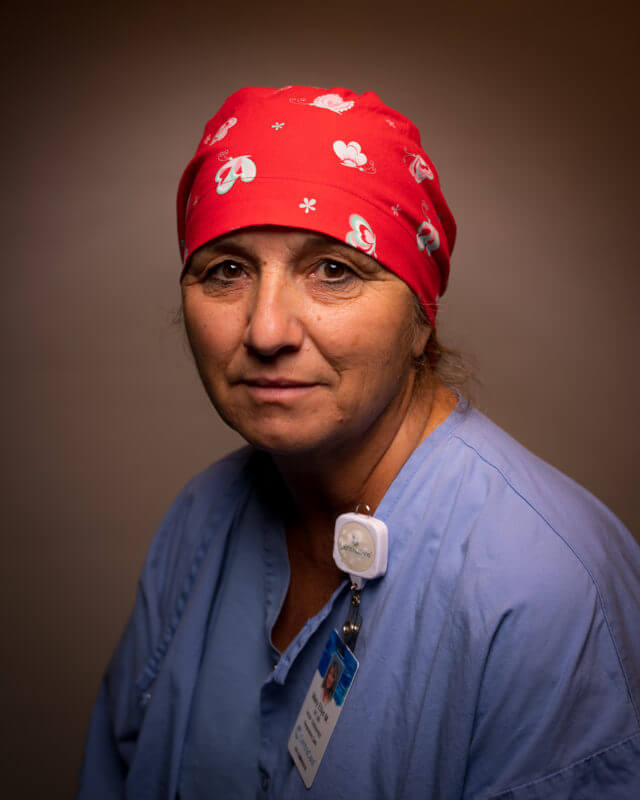
Mary Ellyn Muhlhauser
I’ve been at CentraCare for 34 years and I think the most memorable experience I’ve had involved with a young mother that was pregnant in the ICU with COVID. She was very, very sick. She was 32 weeks pregnant and I was working the day we needed to take the baby. We were going to take her to the O.R, but she started going downhill so we had to do an emergency bronch and deliver the baby up in the ICU room. In that moment the adrenaline runs because it’s a life and death situation.
“In that moment the adrenaline runs because it’s a life and death situation.”
Mary Ellyn Muhlhauser, Respiratory Therapist
There’s so much of this experience that is difficult. It’s not that we didn’t see death prior to the pandemic, but the frequency of death right now is really hard. You’re working with the nurses, doctors and every facet of the care team to treat these patients, but seeing patients decline continually and the prevalence of death can be overwhelming.
But what gives me hope is coming to work and seeing everyone showing up every day. It’s having those conversations with people on the RT team and our care teams, and seeing people smiling with their eyes. It’s seeing there’s still positivity in our organization and within all our staff as a whole. I try to take things day by day, and week by week, and just find those silver linings in each day – and give patients the best care that we can. Because that’s why we’re all here.
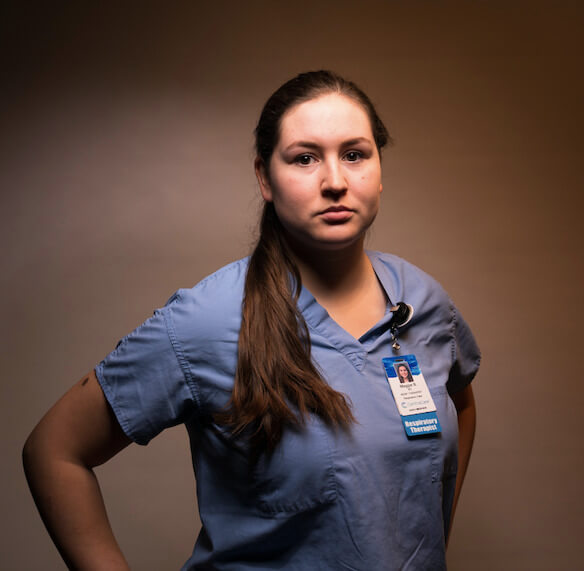
Maggie Baumann
I graduated in 2019, so by the time I started working at CentraCare, I only had about three months of ICU experience before the pandemic hit. So it went from having one, maybe two critical patients, to COVID hitting and having five to six at a time. It was a big learning curve.
“I went from having one, maybe two critical patients, to COVID hitting and having five to six at a time.”
Maggie Baumann, Respiratory Therapist
At the beginning, I felt numb a lot. There was so much changing, so much happening, and so much to wrap your head around. I was 20 years old when it started and I had no idea what hit me. I was just taking it day by day. I’d get home after a shift and I couldn’t focus. I couldn’t think of anything because so much was taken out of me. It was beyond lonely. And COVID is still the majority of my life because I’m physically and emotionally drained at the end of the day.
I’ve second guessed myself so many times in the last couple years, like, is it worth it? But the respiratory department feels like a family. My coworkers are truly the only ones that understand exactly what we’re going through and we’re all in this together. I love being a respiratory therapist. This is my team. This is my family. Peggy is an amazing manager and she does so much to inspire me and all of us. She motivates me daily to remember why I started and how far we’ve come. So that’s what’s keeping me here. CentraCare is my home.
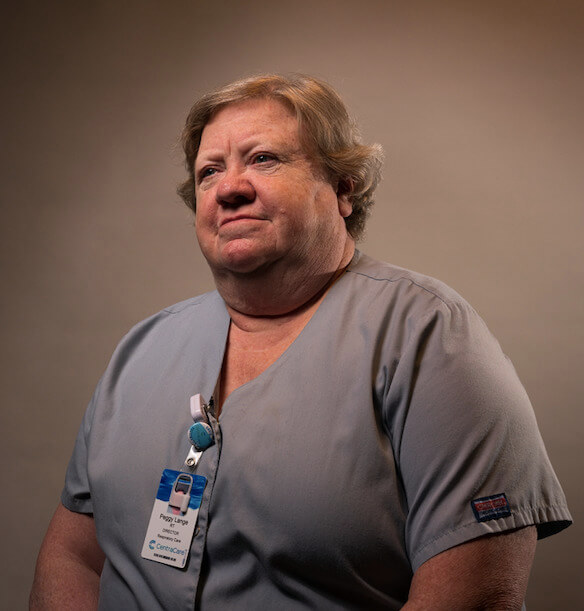
Peggy Lange
When I was hired at CentraCare, I was respiratory therapist (RT) #6. That was 42 years ago. I worked the floors, worked nights and several other roles before my position now, which is leading an amazing team of RTs at St. Cloud Hospital. As RTs, our goal is always to make breathing easier for patients. That hasn’t changed, but the pandemic changed a lot – particularly the number of patients needing respiratory therapy, the acuity of those patients and the amount of protection we needed to be safe for the patients and ourselves.
“As RTs, our goal is always to make breathing easier for patients.”
Peggy Lange, Director, Respiratory Care, St. Cloud Hospital
There have been devastating times during this pandemic, and sometimes it’s overwhelming. Our teams, which include 56 RTs working across the system, have experienced so much despair and death. But it’s not just one or two things that make it difficult – it’s the whole emotion of it all. And through it all, our respiratory therapists have been just remarkable, caring for our patients and each other.
I do worry about the impact all of this is having on our caregivers because of everything they’ve been through. I don’t think we know what the long-term effects will be, but I believe that sharing our experiences, emotions and supporting each other as we heal from this will help us move forward.


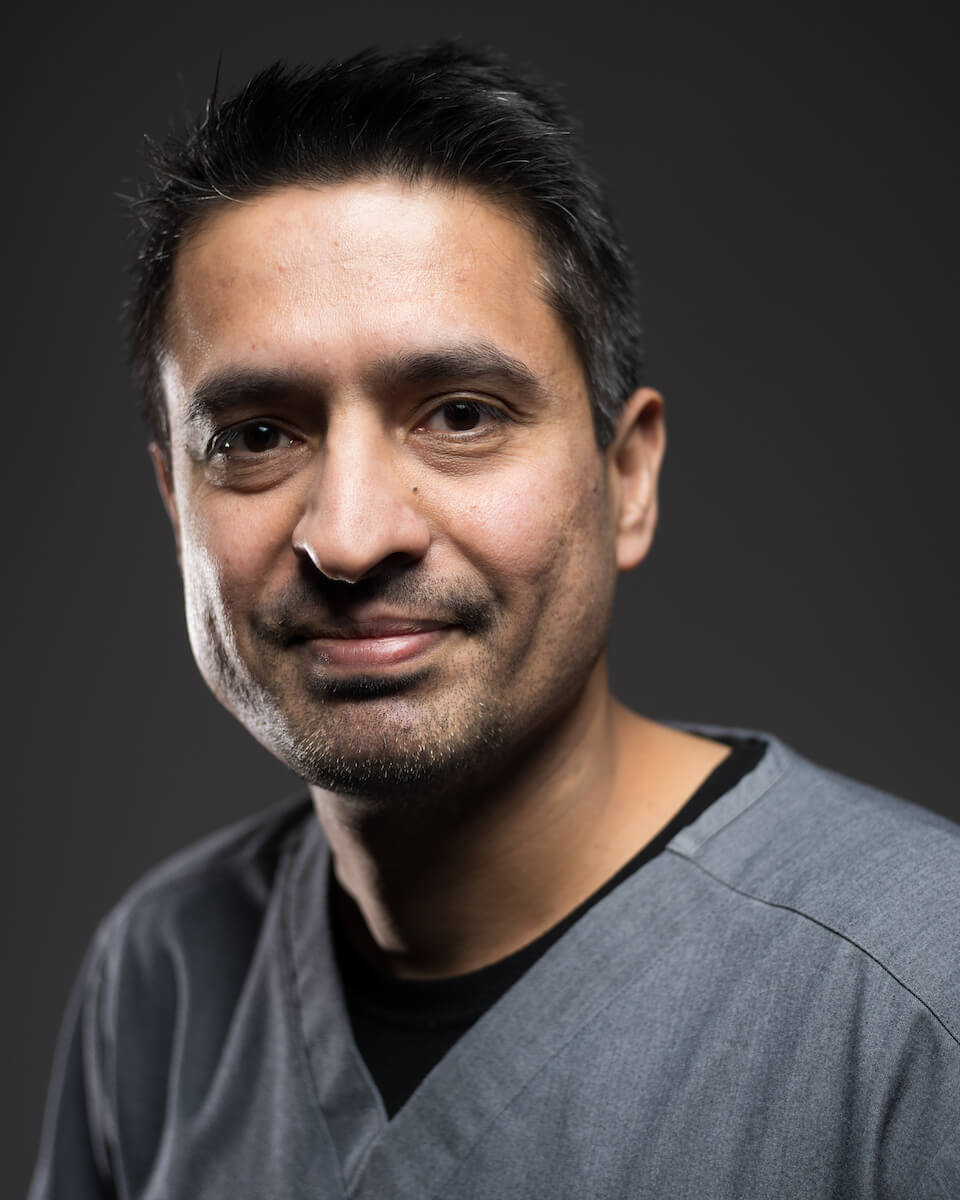
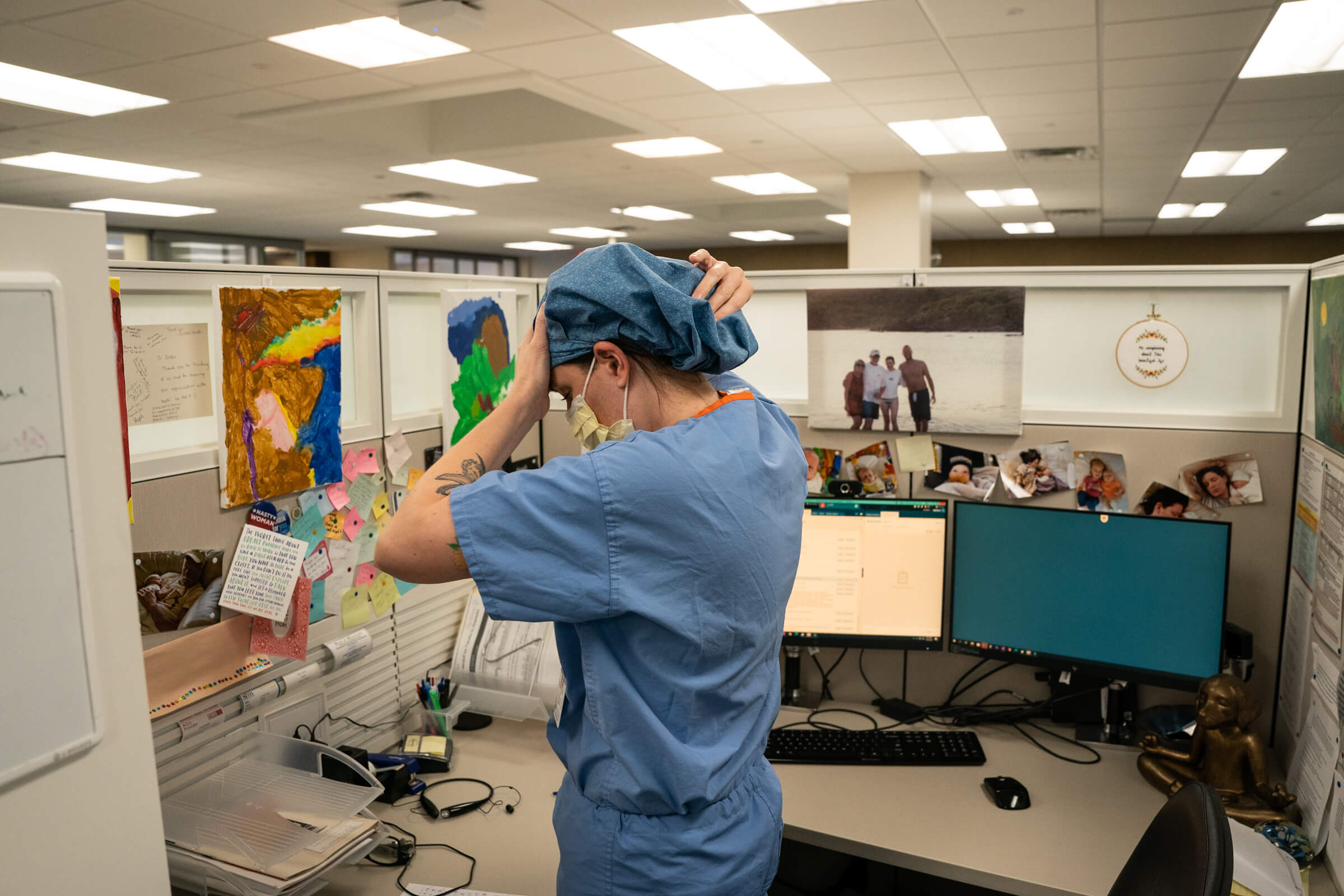






Thank you for sharing your personal experiences and amazing stories of how everyone went above and beyond to serve our patients and families. Thank you!
Raw and Real. Thanks for sharing your heart.
I took care of one of the first covid codes we had. I was the one to call his sister to say he wouldn’t make it. One and a half years later, I cared for his father. His father made it.
Wow… so heartbreaking for staff doing everything they can for and patients and families when sometimes there is nothing more you can do. Hugs hugs hugs. Thank you
Thank you for your continued hard work! We are lucky to have you as part of the CentraCare team.
Thank you for the real stories, Thank you for what you do everyday!
Wow! It’s truly a testament to your perseverance that you’ve been able to continue to help so many people every day. Thank you.
I am amazed at how you are able to find the strength and courage to carry on after hearing of what you deal with everyday. Thank you for sharing and continuing to be there for your patients and each other.
Thank you for providing expert care to those you serve. Thank you for coming back day after day, and for staying – for the patients and their families, and for each other. Thank you for being vulnerable and building trust. Thank you for sharing your painful, emotional stories with us. You are the heart and soul of CentraCare, and I am deeply grateful.
Thank you for sharing your stories! RT’s are amazing and so appreciated by nursing staff. Thank you for doing what you do day in and day out. We as nurses could not do our jobs without you.
I’m proud & honored to work with our Respiratory Therapy teammates. They’ve come to the rescue many times in my years as a nurse. Thanks for sharing your stories and helping us all “breathe easier!”
I’ve been on the Recruiting Team for just over a year now. If I’m being honest, while leafing through hundreds of RT resumes, sometimes I don’t always ‘hear’ the RT prospect’s worry, sadness, and frustration from the volume of loss experienced.
While skimming over their cover letters, I don’t ‘see’ the Grit and Tenacity they possess to battle for patients day in and day out.
And, it can be hard to phone screen for Resilience and Compassionate Care.
Hearing these testimonials reminds me to be empathetic to our applicants/prospects/candidates. I’m so grateful for the work we do as Recruiters to build strong teams, that create strong communities. Thank you for sharing your day to day stories that inspire us all to do better!
Whew… the emotions I felt while reading your stories were quite overwhelming. I can only imagine what you have gone through and continue to go through. Know that I truly appreciate each and everyone of you and cannot possibly thank you enough for all that you do! Blessings to all ❤ 🙏
These stories are heartbreaking and very emotional. I could hear in your voices the toll that these experiences took on you. I admire your courage and perseverance through the hardships, as well as the triumphs. You are truly healthcare heroes, and your service and dedication is so very needed and appreciated.
Wow. Thank you for all you do.
You all are amazing!
I wasn’t planning on crying today. Thank you for making it real and for all you do. These stories were inspiring. We’re all better together!